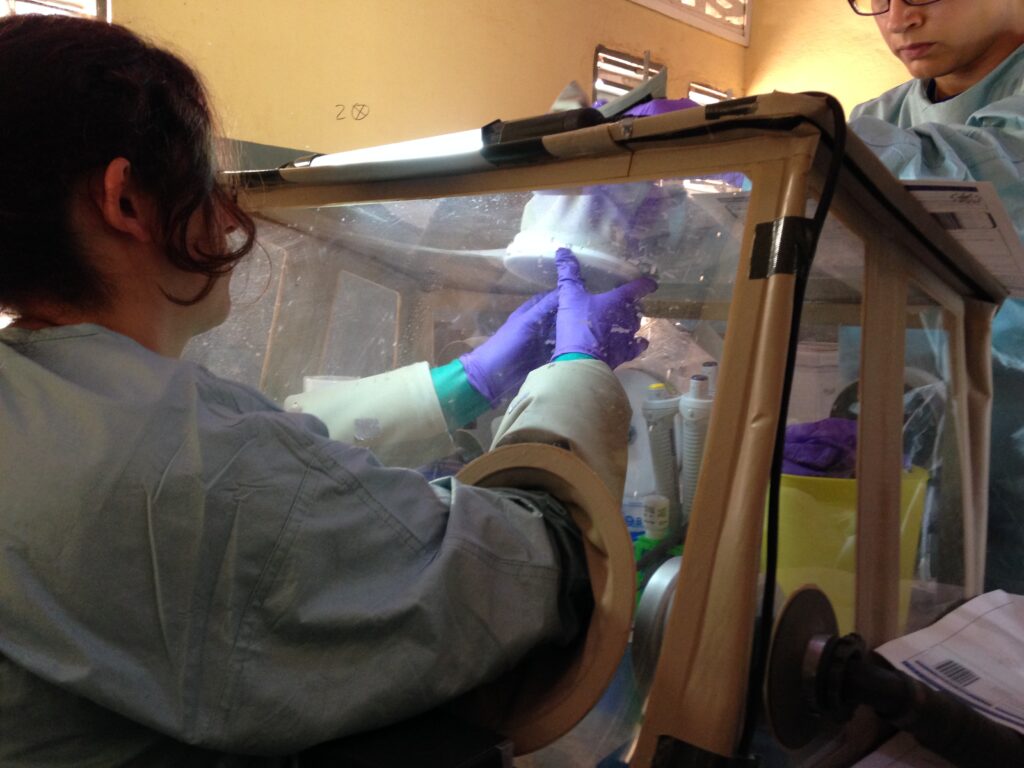Today is World Humanitarian Day (19 August), a day to celebrate those who have dedicated their lives to promoting human welfare.
August 19 was selected to commemorate the 2003 bombing of the UN Headquarters in Baghdad, and World Humanitarian Day allows us to reflect on the public health impacts of the many conflicts, epidemics and natural disasters still occurring across the world.
Public Health England has a local remit, but to protect UK public health we must think globally, and consider how we as part of the global humanitarian system, can improve our work alongside affected populations to protect and improve their health.
The last ten years have seen a significant number of changes to improve accountability, leadership, and coordination of the humanitarian system.
In 2005, the Inter-Agency Standing Committee and Emergency Relief Coordinator began the Humanitarian Reform process which aimed to improve the effectiveness of humanitarian responses.
One of the key actions in this process was formation of the Cluster system. Clusters are groups of key organisations who respond to a disaster and they play a central role in coordinating the overall emergency response. This year we became partners in the Global Health Cluster which aims to reduce the health impacts of humanitarian disasters and supports the operation of the Health Cluster in-country.
Despite these moves towards a more effective system, the road to a more coordinated humanitarian response has not been smooth. The West Africa Ebola response has highlighted weaknesses and identified that further changes and reform must take place, and the global health community recognises that changes need to happen.
In previous blogs we’ve outlined the skills and knowledge that PHE specialists bring to an emergency response, regardless of where in the world that response is required. We have also published our first capability statement highlighting the vital skills, experience and expertise of our staff. There is an obvious need for the essential skills of field medical teams to deliver emergency care following a disaster and an increasing recognition that public health emergencies often occur alongside the initial health crisis (for instance, the cholera outbreak following the earthquake in Haiti). Field Medical Teams value the support of public health experts and the role and value that our specialists bring before, during and after disasters.
PHE public health specialists have received a wide range of training that instils a degree of flexibility, adaptability and experience that is essential in the early, often tumultuous, stages of a humanitarian response. Alongside the skills we can deploy on the ground, we have the support of many experts back in the UK. This is essential in providing the scientific evidence base, strategic support and expertise required to make actions sustainable.
We have a growing and globally recognised department working on disaster risk reduction. We know that the best, most sustainable responses are those which consider the future and build populations into the decision making process. We also need to consider the impact that disasters may have on the most vulnerable groups of society. For example, older people, those with pre-existing medical conditions and disabilities can often be more disadvantaged than the general population during and following a disaster. Our existing work on Heatwaves, Cold Weather and Flooding provide actions of how best to prepare, respond to and recover from such natural disasters.
Our approach to delivering humanitarian assistance is underpinned by the core public health values and principles that guide our work in the UK. We aim for our responses to be equitable, empowering, effective, evidence-based, fair and inclusive. We work closely alongside Non-Government Organisations, UK and international Government departments and the wider international community to support delivery of a more coordinated approach. Supporting humanitarian responses is a key priority within our Global Health Strategy and an area we aim to strengthen and build on over the next 5 years.
This is an opportunity for us to thank all our staff from across PHE for their ongoing and dedicated work on the West Africa Ebola Virus Disease (EVD) outbreak. Particularly the epidemiologists, microbiologists and public health specialists who have left their families in the UK to work overseas but also those who remained at home to support the effort through expert training and coordination of deployments. And while our focus is still very much on the EVD outbreak, we shouldn’t forget the rapid responses of our staff to other disasters such as the typhoon in the Philippines, South East Asian tsunami and support given towards the Fukushima radiation disaster in Japan.
While today is a single day when we recognise the contribution of humanitarian workers worldwide, every day we must remember protecting health locally ultimately means supporting public health globally.


